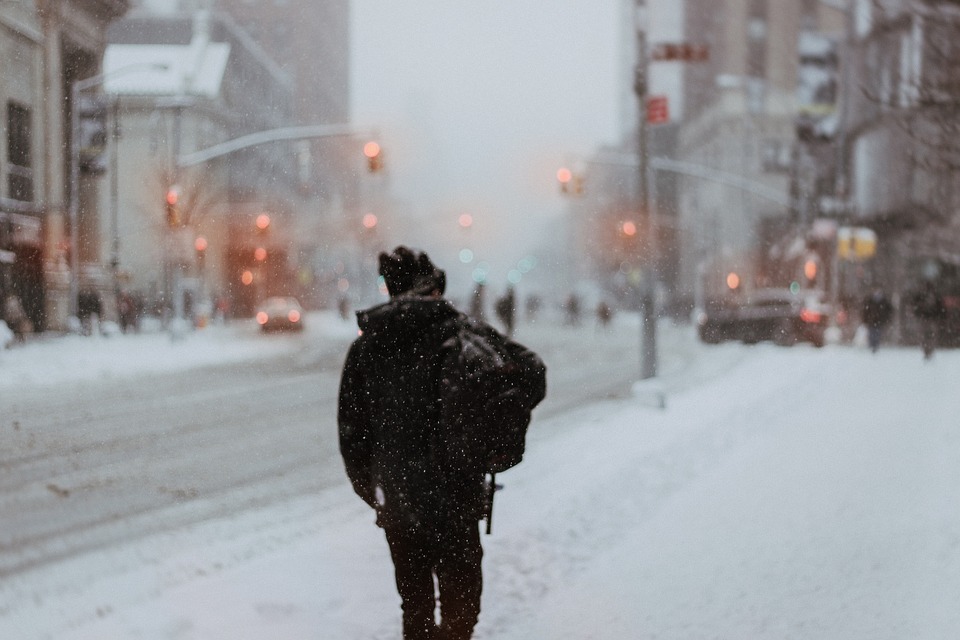National Weather Forecast
:no_upscale()/cdn.vox-cdn.com/uploads/chorus_asset/file/24488481/national_highsd2.jpeg)
:no_upscale()/cdn.vox-cdn.com/uploads/chorus_asset/file/24488480/national_day2map.jpeg)
A messy Thursday is expected across much of the nation, as we watch snow across the northern tier of states and into the western United States. Heavy rain will be possible at lower elevations in California and across the Southern Plains and Deep South. A few of those storms in the southern U.S. could be strong. The driest weather will be in the Four Corners region and in parts of the Eastern United States.
:no_upscale()/cdn.vox-cdn.com/uploads/chorus_asset/file/24488479/national_3dayprecipsnow.jpeg)
Through the end of the week, we will track heavy rain across the West Coast and in portions of the Southern Plains and lower Mississippi Valley, where 3”+ tallies are expected. While 6”+ of snow will be possible in the upper Midwest, feet of snow will fall in the western mountains.
/cdn.vox-cdn.com/uploads/chorus_asset/file/24488474/Mar08_ForecastLoop.gif)
:no_upscale()/cdn.vox-cdn.com/uploads/chorus_asset/file/24488477/ncregional_3daysnow_nonumbers.jpeg)
As an area of low-pressure slides across the Upper Midwest to the Great Lakes and Ohio Valley during the second half of the week, we will be watching the potential of heavy snow at times from Wednesday Night across the Dakotas to the Great Lakes by Thursday Night. At times, particularly across southern Minnesota, northern Iowa, and southern Wisconsin late Thursday into Thursday night, snowfall rates up to 1” per hour will be possible. The heaviest area of snow with this system is expected to fall across parts of northeastern Iowa, southeastern Minnesota, and southern Wisconsin, where tallies of 6-10” will be possible – this includes Rochester (MN), Waterloo (IA), Madison and Milwaukee (WI). This is also the area that has the highest potential of 1” per hour snowfall rates into Thursday Night. Tallies of 3-6” will be possible for areas like Sioux Falls, the Twin Cities, and Detroit. This snow will impact several rush hour commute periods over the next few days across the region.
/cdn.vox-cdn.com/uploads/chorus_asset/file/24488470/Mar8_WesternLoop.gif)
Forecast loop from 5 AM PST Thursday to 5 PM PST Saturday.
:no_upscale()/cdn.vox-cdn.com/uploads/chorus_asset/file/24488469/Mar8_CARain.png)
Meanwhile, we will see another strong system move into the western United States Thursday into Friday, producing heavy rain across California and Nevada with heavy snow in the mountains. That is when the heaviest precipitation is expected across the region. However, precipitation will linger as we head into the weekend. Another system looks to then impact the region early next week. With widespread rain expected in the western United States through the weekend, rainfall tallies of up to 7” in some locations (especially in coastal areas, the foothills, and the mountains) will be possible through Saturday morning.
Treasury Secretary Yellen warns that losses tied to climate change could ‘cascade through the financial system’
More from CNBC: “Treasury Secretary Janet Yellen on Tuesday warned that climate change is already taking a significant economic toll and could cause extensive losses to the U.S. financial system in the coming years. Yellen made the remarks during the first meeting with the Climate-related Financial Risk Advisory Committee (CFRAC), an advisory board that was set up last year by the Financial Stability Oversight Council in an effort to bolster U.S. action to minimize climate risk to the economy. “As climate change intensifies, natural disasters and warming temperatures can lead to declines in asset values that could cascade through the financial system,” she said during the meeting. “A delayed and disorderly transition to a net-zero economy can lead to shocks to the financial system as well.””
Kerry: China tensions hurting climate talks
More from Axios: “U.S. climate envoy John Kerry tells Axios his work with China has stalled amid wider tensions between the world’s two largest greenhouse gas emitters. Driving the news: “Regrettably, in the last year … what was not supposed to happen has happened, which is the climate issue has gotten mixed up into all the other tensions that exist between our countries,” Kerry said in an interview at the CERAWeek by S&P Global conference. “And so they’ve kind of pulled back a little bit, expressing the feeling that all we’re doing is bashing them and bashing them,” he said. Why it matters: It’s impossible to meet the Paris Agreement’s goals for holding global warming in check without more aggressive steps by China, the world’s top current emitter.”
A warm February wrapped up a warm winter for U.S.
_______________________________________________
Follow me on:
- Twitter: @dkayserwx
- Facebook: Meteorologist D.J. Kayser
- Instagram: @dkayserwx
- Mastodon: @dkayserwx
- Post: @dkayserwx
Thanks for checking in and have a great day!
– D.J. Kayser
:no_upscale()/cdn.vox-cdn.com/uploads/chorus_asset/file/24243265/DJ_2021.jpg)

